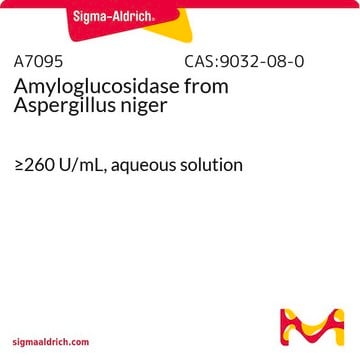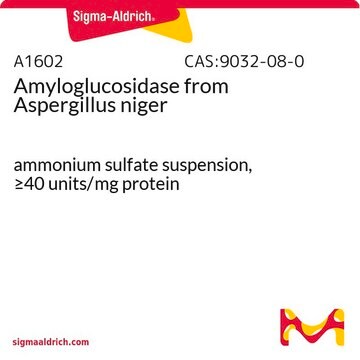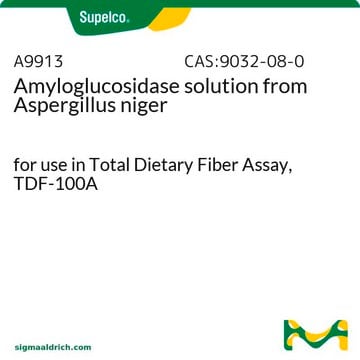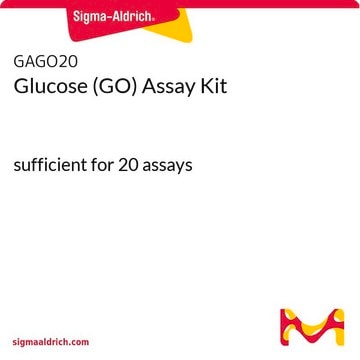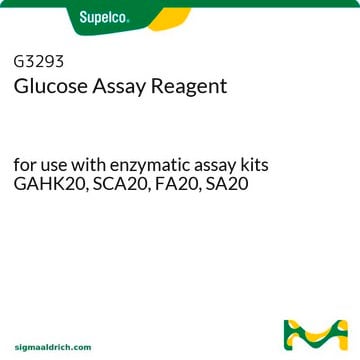A7420
Amiloglucosidasi
lyophilized powder, 30-60 units/mg protein (biuret), ≤0.02% glucose
Sinonimo/i:
1,4-α-D-glucan glucoidrolasi, Eso-1,4-α-glucosidasi, Glucoamilasi
About This Item
Prodotti consigliati
Forma fisica
lyophilized powder
Attività specifica
30-60 units/mg protein (biuret)
Composizione
protein, ≥80%
Caratteristiche più verdi
Waste Prevention
Design for Energy Efficiency
Learn more about the Principles of Green Chemistry.
sustainability
Greener Alternative Product
Impurezze
≤0.02% glucose
Categoria alternativa più verde
, Enabling
Temperatura di conservazione
−20°C
Cerchi prodotti simili? Visita Guida al confronto tra prodotti
Descrizione generale
Applicazioni
Azioni biochim/fisiol
Definizione di unità
Stato fisico
Altre note
Inibitore
Avvertenze
Danger
Indicazioni di pericolo
Consigli di prudenza
Classi di pericolo
Resp. Sens. 1
Codice della classe di stoccaggio
11 - Combustible Solids
Classe di pericolosità dell'acqua (WGK)
WGK 3
Punto d’infiammabilità (°F)
Not applicable
Punto d’infiammabilità (°C)
Not applicable
Dispositivi di protezione individuale
Eyeshields, Gloves, type N95 (US)
Certificati d'analisi (COA)
Cerca il Certificati d'analisi (COA) digitando il numero di lotto/batch corrispondente. I numeri di lotto o di batch sono stampati sull'etichetta dei prodotti dopo la parola ‘Lotto’ o ‘Batch’.
Possiedi già questo prodotto?
I documenti relativi ai prodotti acquistati recentemente sono disponibili nell’Archivio dei documenti.
I clienti hanno visto anche
Protocolli
This procedure may be used for the determination of Amyloglucosidase activity using starch as the substrate.
Il team dei nostri ricercatori vanta grande esperienza in tutte le aree della ricerca quali Life Science, scienza dei materiali, sintesi chimica, cromatografia, discipline analitiche, ecc..
Contatta l'Assistenza Tecnica.